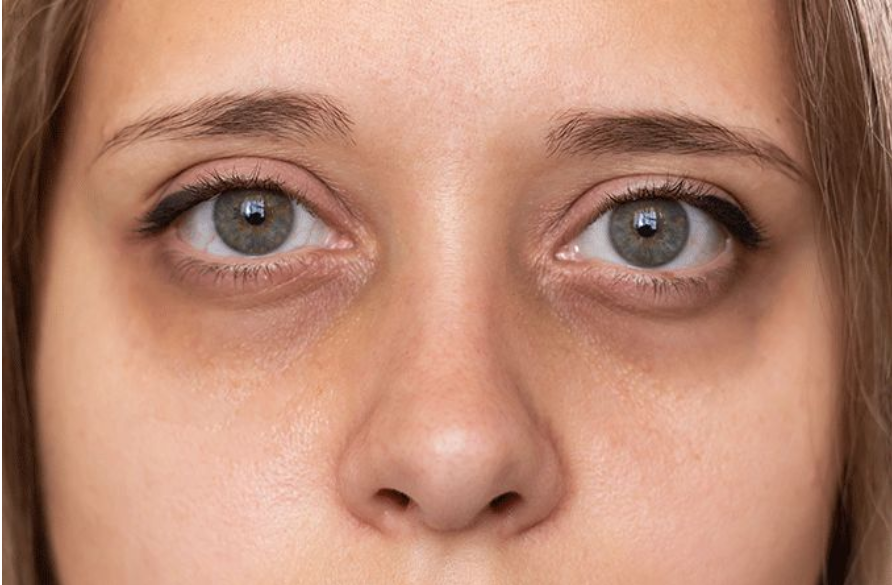What are Dark Circles?
Dark circles under the eyes are a common concern for many people. Whether they appear as faint shadows or deep, noticeable discolorations, they can make you appear tired, older, or even unwell. The quest to banish these pesky under-eye circles has led to a plethora of remedies and treatments, but before delving into solutions, let’s unravel the mystery behind their causes.
Understanding the Culprits: What Causes Dark Circles?
Dark circles result from various factors, and it’s important to identify the underlying cause to effectively address them. Here are some common contributors:
- Genetics: Your genes play a significant role in determining your susceptibility to dark circles. If your parents or grandparents had them, you’re more likely to develop them too.
- Thin Skin: The skin around your eyes is delicate and thin. As you age, it becomes even thinner, making blood vessels beneath the skin more visible. This can result in a bluish or purplish hue.
- Ocular Hypotensive Drugs: Some ophthalmic solution drugs, like latanoprost and bimatoprost, prescribed for glaucoma treatment, may lead to periocular hyperpigmentation (POH). These changes are most likely to occur between 3 and 6 months after starting bimatoprost treatment. In some cases, the discoloration may be permanent, and it’s advisable to consult a doctor if you notice significant changes.
- Eyestrain: Prolonged periods of staring at a television or computer screen can strain your eyes. This strain may dilate the blood vessels around your eyes, potentially contributing to the development of dark circles.
- Blood Vessel Congestion: When blood vessels under the eyes become congested or dilated, they can appear darker. Factors like allergies, sinus issues, or rubbing your eyes excessively can contribute to this congestion.
- Lack of Sleep: Contrary to popular belief, sleep deprivation is not the sole cause of dark circles, but it can exacerbate their appearance. A good night’s rest is essential for overall health, including the skin around your eyes.
- Sun Exposure: Prolonged sun exposure can increase melanin production, leading to pigmentation and darkening of the skin. Always wear sunscreen and protective eyewear when outdoors.
- Lifestyle Factors: Smoking, excessive alcohol consumption, and an unhealthy diet can contribute to the development of dark circles. These habits can compromise your skin’s health and appearance.
- Underlying Medical Conditions: Certain medical conditions, such as allergies, eczema, anemia, or thyroid problems, can manifest as dark circles under the eyes. Treating the underlying condition is key to reducing their appearance.

Home Remedies to Tackle Dark Circles
- Cold Compress: Apply a cold compress, like a chilled spoon or cucumber slices, to your closed eyelids for 10-15 minutes. This can help reduce puffiness and constrict blood vessels, diminishing the appearance of dark circles.
- Tea Bags: Used tea bags, especially green or chamomile tea, can be placed over your eyes for a soothing effect. Their natural antioxidants may help reduce dark circles.
- Adequate Sleep: Ensure you get 7-9 hours of quality sleep per night. Sleep deprivation can worsen dark circles. Elevating your head while sleeping can also prevent fluid accumulation around the eyes.
- Hydration: Drink plenty of water to keep your skin well-hydrated. Dehydration can make dark circles more prominent.
- Topical Remedies: Consider using creams or serums containing ingredients like vitamin C, vitamin K, hyaluronic acid, or caffeine. These can help brighten the under-eye area and reduce puffiness.
- Sun Protection: Wear sunglasses and apply sunscreen to protect the delicate skin around your eyes from sun damage, which can exacerbate dark circles.
- Balanced Diet: Consume foods rich in antioxidants, like fruits and vegetables, to promote skin health. Maintain a diet with adequate iron, vitamins, and minerals.
Your Vision, Our Priority: Shekar Eye Hospital Welcomes You
Addressing the issue of dark circles involves understanding and addressing their underlying causes. When it comes to factors like eye strain from prolonged screen time or the side effects of ocular hypotensive drugs, taking proactive steps to reduce eye strain, such as regular breaks and using artificial tears, can help mitigate the risk. However, for those experiencing persistent or concerning changes, especially due to medications like bimatoprost, it is crucial to seek the guidance of an ophthalmologist.
At Shekar Eye Hospital, we prioritize your eye health and overall well-being. Our experienced team of specialists is dedicated to providing comprehensive eye care and addressing any concerns related to your eyes.
If you’re facing eye-related challenges, Shekar Eye Hospital is here to guide you. Contact us today to schedule a consultation and ensure the health and clarity of your vision.








